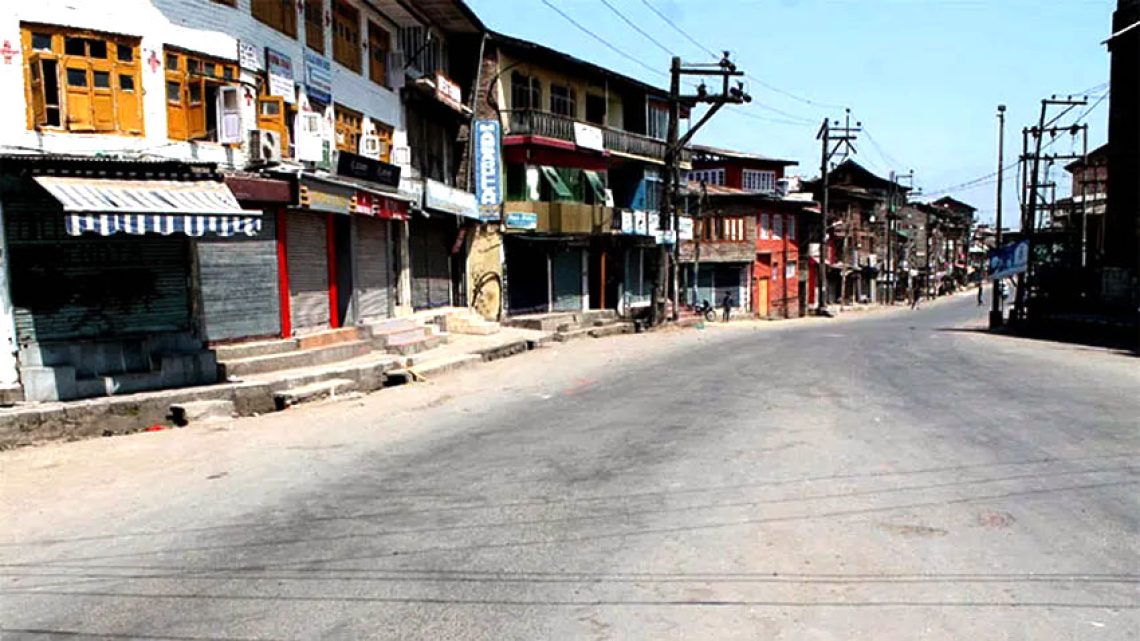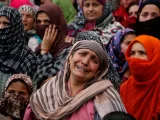
Kashmir Shuts Down in Protest Against Modi’s Visit: A Closer Look at the Unrest
March 8, 2024A widespread shutdown gripped Indian illegally occupied Jammu and Kashmir in vehement protest against Indian Prime Minister Narendra Modi’s visit to the disputed region. Orchestrated by the All Parties Hurriyat Conference and endorsed by various Hurriyat leaders and organizations, the strike paralyzed the region, marking it as a significant act of dissent.
According to reports, the strike call resulted in a complete standstill, with traffic movement severely diminished in Srinagar and surrounding areas, which were designated as Red Zones. Stringent restrictions were implemented across the Kashmir Valley, featuring an extensive network of checkpoints. The presence of additional Indian troops was conspicuous, particularly around the Bakshi Stadium, where Modi’s rally was scheduled. To monitor civilian activities, drones and CCTV cameras were deployed, while hundreds of Kashmiri youth faced arrests during recent raids, crackdowns, and search operations conducted by Indian military and police personnel.
Omar Abdullah, the Vice-President of the National Conference, expressed concern about the government’s coercive tactics, revealing that government employees were compelled to attend Modi’s rally under the threat of disciplinary actions. Abdullah disclosed a document on social media that listed employees ordered to report to the venue as early as 4:30 am in freezing temperatures. Private schools were also instructed to provide buses for ferrying employees to the rally venue, further raising questions about the alleged coercion.
Simultaneously, a protest rally unfolded at the Press Club in Muzaffarabad against Modi’s visit to occupied Jammu and Kashmir. Organized by Pasban-e-Hurriyat Jammu and Kashmir, the protesters vehemently denounced India’s illegal occupation of the region, emphasizing the widespread opposition to Modi’s presence in the disputed territory.
Beyond the region, international concern has been expressed by the Organization of Islamic Cooperation (OIC) over the escalating human rights situation in Indian occupied Jammu and Kashmir. Pakistan’s permanent representative to the United Nations, Bilal Ahmad, addressed the Human Rights Council in Geneva on behalf of Islamic countries, urging India to adhere to relevant UN Security Council resolutions and implement recommendations outlined in the two Kashmir reports by the Office of the UN High Commissioner for Human Rights.
The unfolding events underscore the deeply rooted tensions and discontent surrounding the Kashmir issue. The international community continues to monitor the situation closely, urging a peaceful resolution and respect for human rights in the troubled region.

